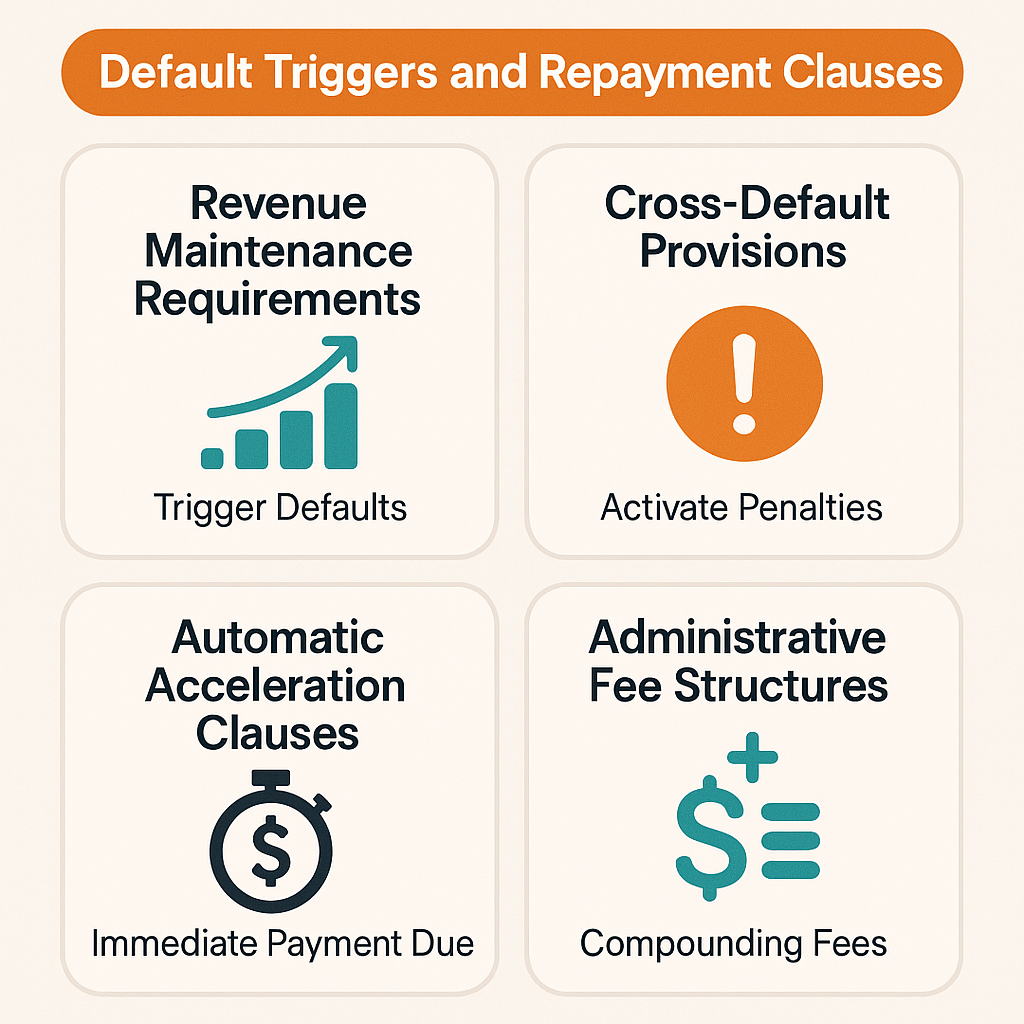Merchant cash advance contracts can offer quick funding solutions, but they may contain legal pitfalls that could trap unwary business owners. Understanding these contractual complexities might mean the difference between accessing helpful capital and facing unexpected financial burdens.
Critical Contract Elements That Require Clause Scrutiny
Effective clause scrutiny becomes essential when reviewing merchant funding agreements, as certain provisions could create significant liability for business owners. These contracts often differ substantially from traditional lending agreements, which means standard business loan protections may not apply.
- Confession of judgment clauses that might allow funders to obtain court judgments without standard legal proceedings
- Personal guarantee requirements that could put personal assets at risk beyond business collateral
- Excessive interest rate calculations that may exceed state usury limits in certain jurisdictions
- Assignment rights provisions that permit funders to transfer contracts to third parties without merchant consent
Business owners should approach these elements with caution, as the regulatory gaps in merchant funding compared to traditional loans can create unexpected vulnerabilities. Legal counsel familiar with commercial financing may help identify problematic clauses before signing.
Understanding Default Triggers and Repayment Clauses
Default triggers in merchant funding contracts often extend beyond simple payment delays, potentially creating situations where businesses face penalties despite maintaining regular revenue. Repayment clauses may include mechanisms that could accelerate payment schedules under specific circumstances.

- Revenue maintenance requirements that might trigger defaults if daily receipts fall below specified thresholds
- Cross-default provisions that could activate penalties if other business debts become delinquent
- Automatic acceleration clauses that may make entire advance amounts immediately due under certain conditions
- Administrative fee structures that might compound quickly when payment issues arise
The consequences of triggering default conditions could include increased fees, legal action, and potential business disruption. Maintaining steady cash flow becomes crucial for meeting payment obligations and avoiding these escalating financial penalties. Business owners should carefully review these clauses to understand what actions or circumstances might activate default provisions.
Legal Counsel Advice and Protection Strategies
Seeking legal counsel advice before signing merchant funding agreements could help business owners identify and negotiate problematic terms. Professional review becomes particularly important given the unique nature of these contracts compared to traditional business loans.
- Contract review services that might identify unfavorable terms before commitment
- Negotiation support that could help modify problematic clauses or payment structures
- Compliance verification that may ensure contract terms align with state and federal regulations
- Risk assessment guidance that might help evaluate whether funding terms suit specific business circumstances
Crisis management strategies may also prove valuable for businesses already committed to merchant funding agreements. These might include maintaining detailed financial records, establishing communication protocols with funders, and developing contingency plans for revenue fluctuations. Business owners should consider implementing thorough contract review processes as part of their standard financing evaluation procedures to protect their interests and ensure sustainable growth.
Legal pitfalls in merchant funding contracts require careful attention and professional guidance. By understanding these risks and implementing proper review processes, business owners can make more informed decisions about their financing options while protecting their operations from unexpected legal complications.

.png)






